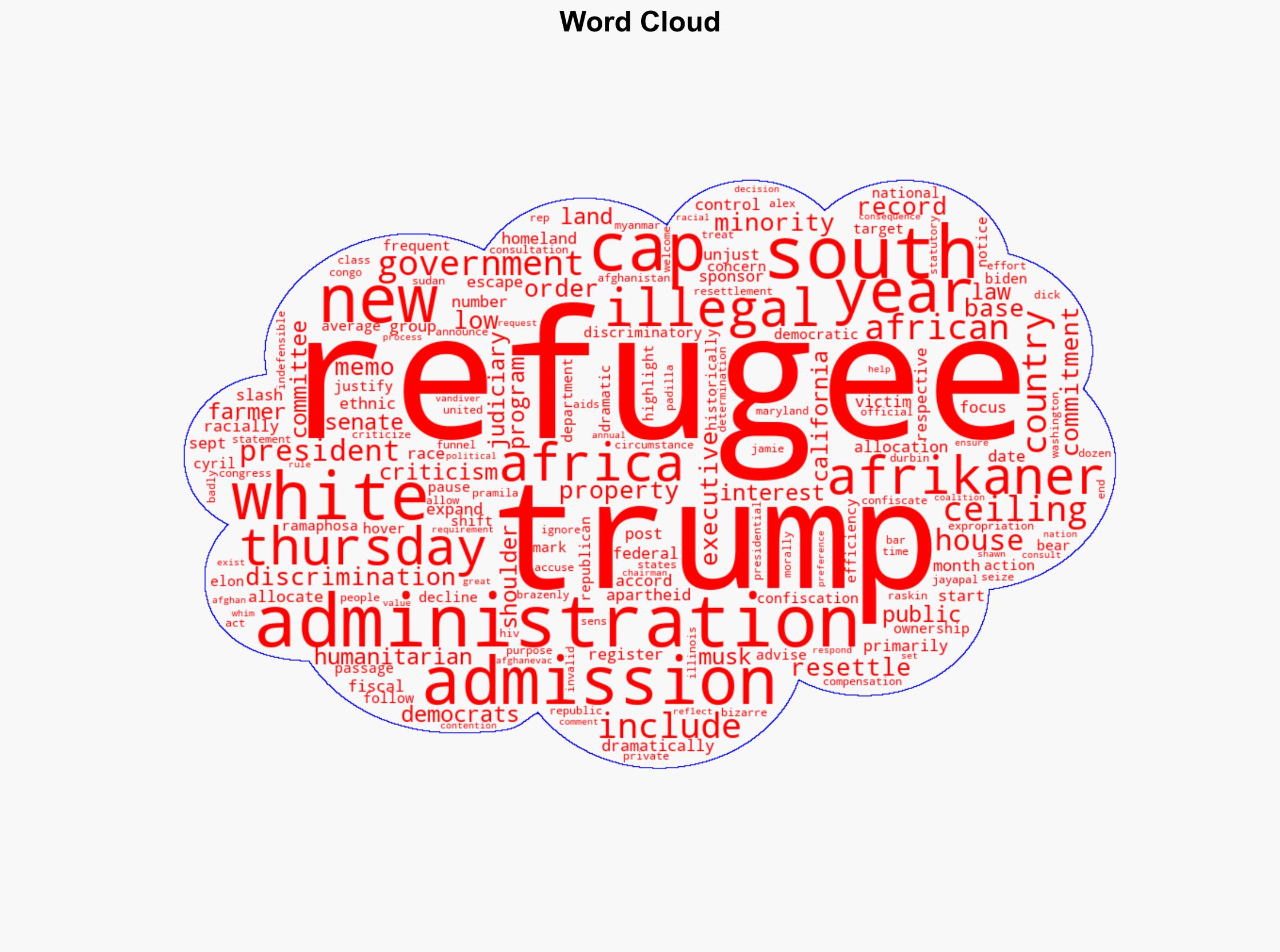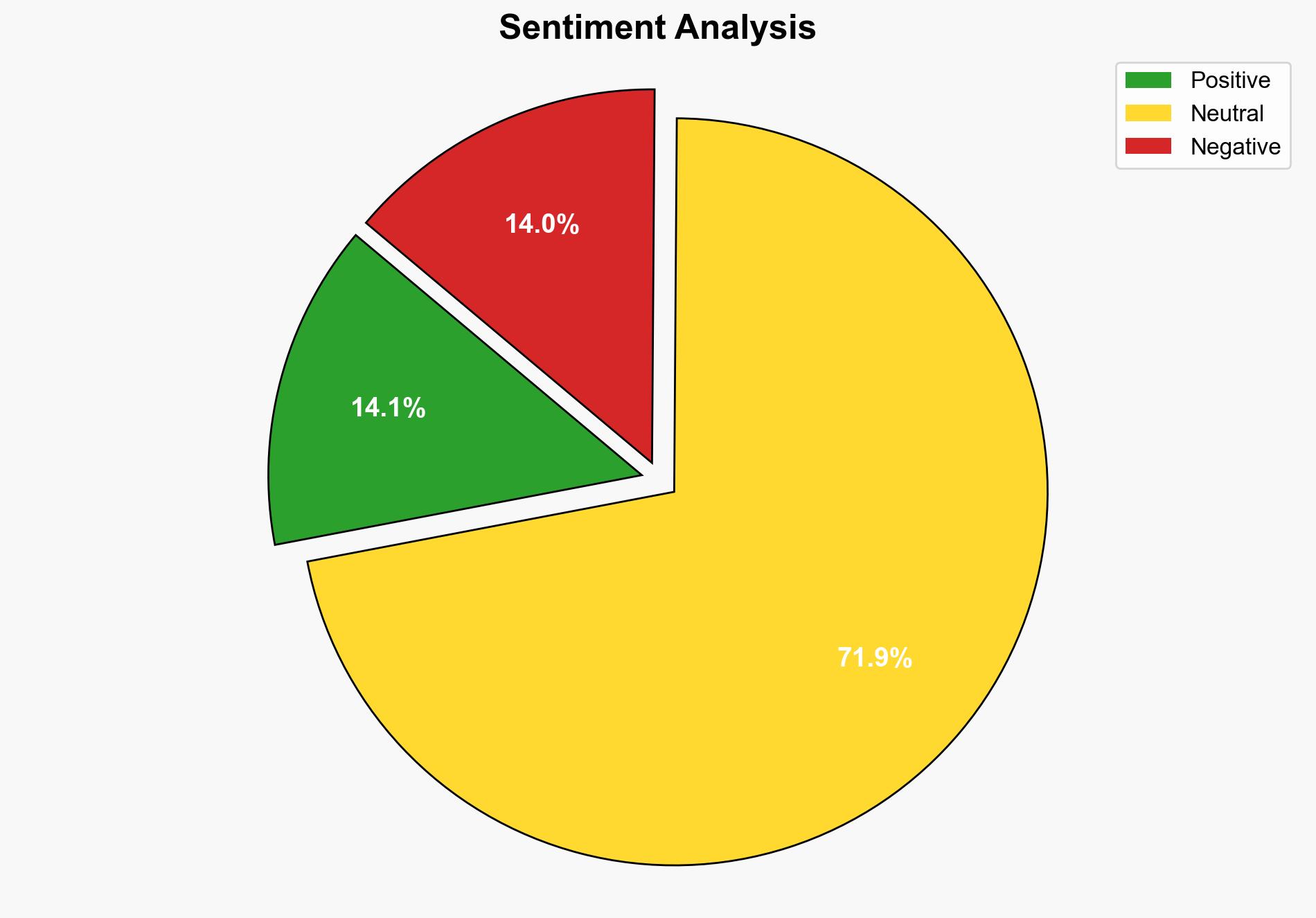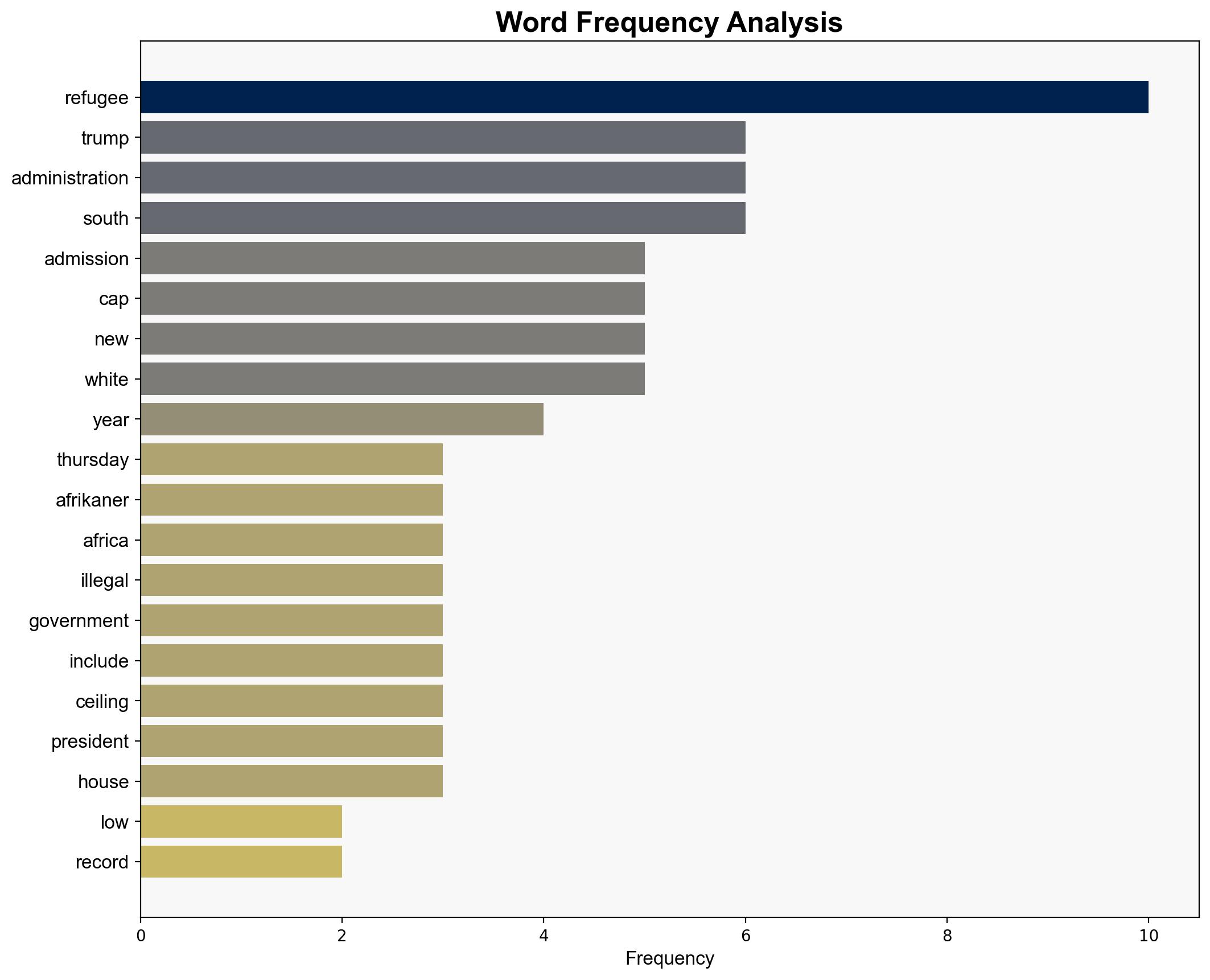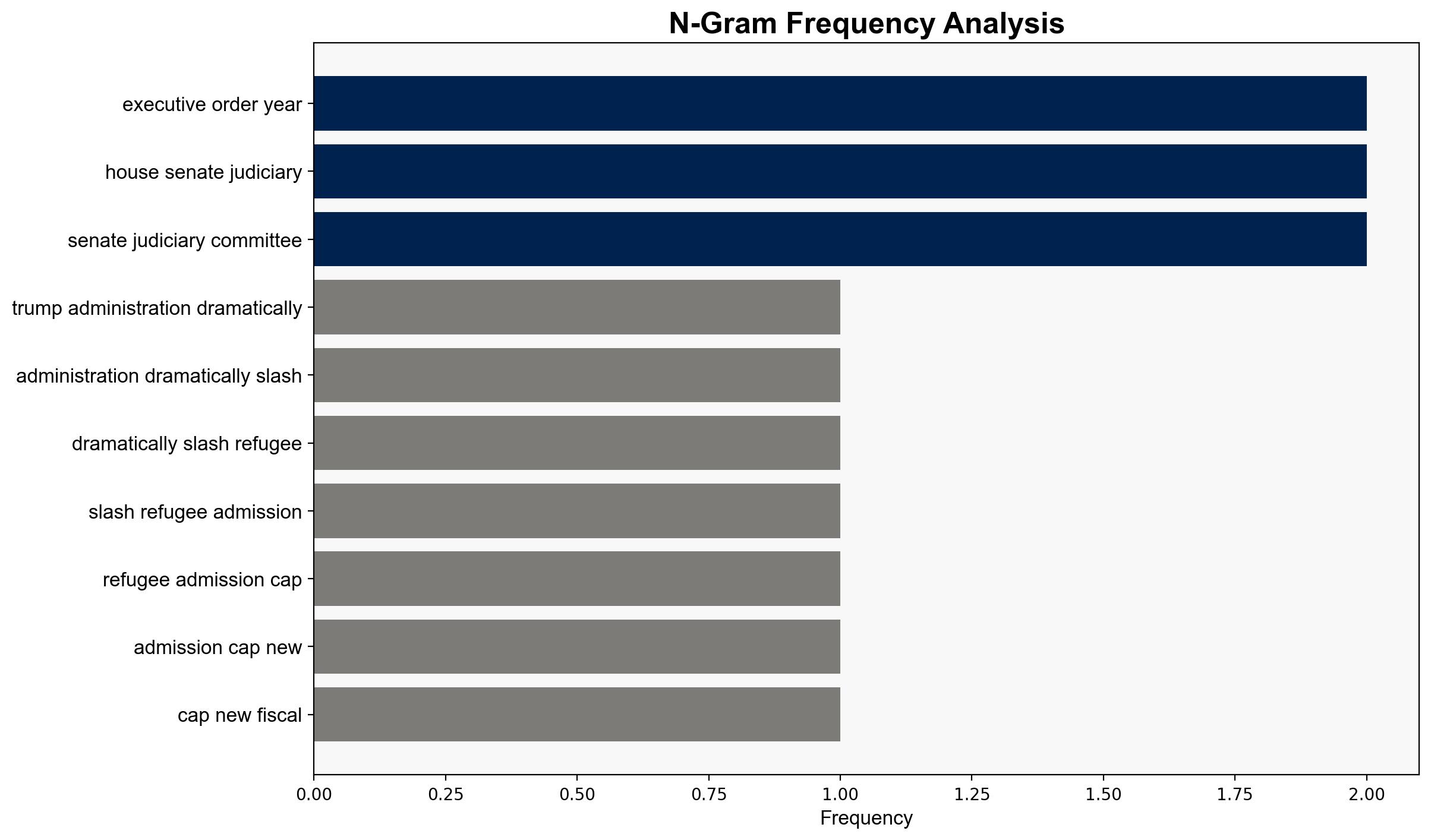Trump administration limits refugee admissions to lowest on record – NBC News
Published on: 2025-10-31
Intelligence Report: Trump administration limits refugee admissions to lowest on record – NBC News
1. BLUF (Bottom Line Up Front)
The Trump administration’s decision to set a historically low refugee admission cap, with a focus on white South African Afrikaners, suggests a strategic pivot towards prioritizing specific ethnic groups under the guise of humanitarian concerns. This move is likely influenced by domestic political considerations and international criticism of South Africa’s land policies. Confidence Level: Moderate. Recommended action includes diplomatic engagement with South Africa to address land reform concerns and a review of refugee policies to ensure alignment with broader humanitarian values.
2. Competing Hypotheses
1. **Hypothesis A**: The administration’s decision is primarily driven by genuine humanitarian concerns for white South African Afrikaners, perceived as victims of racial discrimination and property confiscation.
2. **Hypothesis B**: The decision is politically motivated, aiming to appeal to certain domestic constituencies and align with Trump’s broader immigration stance, using humanitarian justifications as a cover.
Using ACH 2.0, Hypothesis B is better supported due to the lack of historical precedent for prioritizing specific ethnic groups in U.S. refugee policy and the political context surrounding the decision.
3. Key Assumptions and Red Flags
– **Assumptions**: Hypothesis A assumes that the administration’s primary motivation is humanitarian, while Hypothesis B assumes political motivations are paramount.
– **Red Flags**: The unprecedented focus on a specific ethnic group raises questions about the true motivations behind the policy. The lack of consultation with Congress, as required by law, suggests potential legal and procedural issues.
– **Blind Spots**: The impact on broader U.S. refugee policy and international relations is not fully addressed in the decision-making process.
4. Implications and Strategic Risks
– **Geopolitical Risks**: Strained relations with South Africa and potential backlash from other nations regarding perceived racial bias in U.S. refugee policy.
– **Domestic Risks**: Potential legal challenges and political polarization within the U.S. regarding the administration’s approach to refugee admissions.
– **Cascading Threats**: The policy could lead to increased scrutiny of U.S. human rights commitments and undermine global leadership in refugee resettlement.
5. Recommendations and Outlook
- Engage diplomatically with South Africa to address land reform issues and mitigate international criticism.
- Conduct a comprehensive review of refugee policies to ensure they align with U.S. humanitarian values and legal obligations.
- Scenario Projections:
- **Best Case**: Policy adjustment leads to improved U.S.-South Africa relations and a balanced refugee program.
- **Worst Case**: Legal challenges and international backlash damage U.S. credibility and refugee resettlement efforts.
- **Most Likely**: Continued domestic and international criticism with potential minor policy adjustments.
6. Key Individuals and Entities
– Elon Musk: Critic of South Africa’s land policies.
– Cyril Ramaphosa: President of South Africa, associated with the Expropriation Act.
– Jamie Raskin, Pramila Jayapal, Dick Durbin, Alex Padilla: U.S. lawmakers critical of the refugee cap decision.
– Shawn Vandiver: Critic of the refugee policy, highlighting its impact on Afghan resettlement.
7. Thematic Tags
national security threats, geopolitical relations, refugee policy, domestic politics




